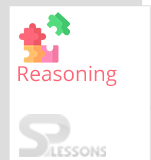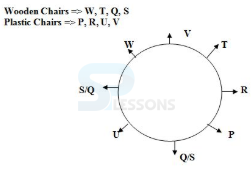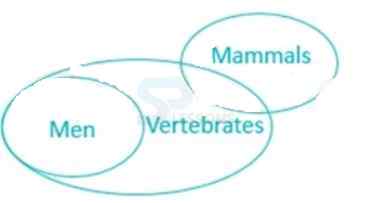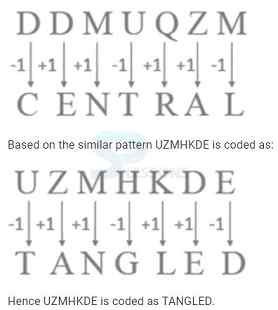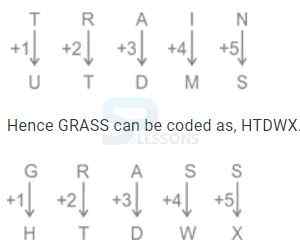 Introduction
Introduction
Telangana State Cooperative Apex Bank has announced a notification for the recruitment of Staff Asst Recruitment posts. The Candidates who are interested and meet all eligibility criteria can read the Official Notification of TSCAB Staff Asst can apply through the Official website or from the given link. Get the complete details of TSCAB Recruitment Reasoning Ability Syllabus along with exam pattern and samples. Check the most important questions related to Reasoning Ability in TS CAB Recruitment Reasoning Ability Quiz 1 section. Candidates can score maximum marks of Reasoning Ability section of TSCAB Recruitment.
 Pattern
Pattern
| TSCAB Recruitment Reasoning Ability Exam Pattern | ||||
|---|---|---|---|---|
| S. No. | Name of Tests (objective) | No. of questions | Max. Marks | Time allotted for each test (Separately timed) |
| 1. | General/Financial Awareness | 50 | 50 | 35 Minutes |
| 2. | General English | 40 | 40 | 35 Minutes |
| 3. | Reasoning Ability & Computer Aptitude. | 50 | 50 | 45 Minutes |
| 4. | Quantitative Aptitude | 50 | 50 | 45 Minutes |
| Total | 190 | 190 | 160 Minutes | |
Penalty for Wrong Answers:
There will be penalty for wrong answers marked in the Objective Tests. For each question for which a wrong answer has been given by the candidate one fourth or 0.25 of the marks assigned to that question will be deducted as penalty to arrive at corrected score. If a question is left blank, i.e., no answer is marked by the candidate, there will be no penalty for that question.
 Syllabus
Syllabus
TSCAB Recruitment TSCAB Recruitment Reasoning Ability - Syllabus (50 Marks):
| TSCAB Recruitment Reasoning Ability - Syllabus | |
|---|---|
| S. No. | Name of the Topic |
| 1. | Number Coding |
| 2. | Inserting Correct Mathematical Sign |
| 3. | Odd Man Out |
| 4. | Mutual Relation Problem |
| 5. | Coding and Decoding |
| 6. | Syllogisms |
| 7. | Circular and/or Linear Seating Arrangement |
| 8. | Statements and Assumptions |
 Quiz
Quiz
Direction(1-5): Study the following information Carefully to answer the given questions.
Eight Children P, Q, R, S, T, U, V and W are playing musical chairs. All of them are sitting on eight different chairs which are kept in a circle and face away from the centre. Four of them are wooden Chairs and four are plastic chairs.
- U sits second to the left of W and both of them sits on different types of chair. V sits second to the left of R and both sit on the same type of chair.
- T is on a wooden chair but opposite to U. Q and S are immediate neighbours of U.
- P does not sits on a wooden chair and the child who sits opposite to P does not sit on the same type of chair.
- The child who is an immediate neighbour of W and T sits on a plastic chair.
- A. R
B. P
C. U
D. Q
E. Can’t be determined
- A. P
B. Q
C. S
D. U
E. None of these
- A. QSTW
B. QRTS
C. PRUV
D. PWUT
E. None of these
- A. WV
B. TR
C. PV
D. QU
E. None of these
- A. U
B. P
C. W
D. V
E. None of these
1. There is a 5 digit no. Sum of 3 pairs of digits is eleven each. Last digit is 3 times the first one. 3rd digit is 3 less than the second. 4th digit is 4 more than the second one. Find the number.
- A. 25296
B. 26594
C. 24569
D. 26458
E. None of these
- A. 46
B. 48
C. 50
D. 56
E. None of these
- A. 0
B. 22
C. 45
D. 567
E. 778
- A. 391
B. 421
C. 481
D. 511
E. 500
- A. 20
B. 22
C. 24
D. 27
E. 36
1. All men are vertebrates. Some mammals are vertebrates. Which of the following conclusions drawn from the above statement is correct?
- A. All men are mammals
B. All mammals are men
C. Some vertebrates are mammals.
D. All are correct
E. None of these
- A. Only (a) is true
B. Only (b) is true
C. Only (c) is true
D. Both (a) and (c) are true
E. Both (b) and (d) are true
- A. 7
B. 8
C. 6
D. 10
E. 8
- A. VYLIJCF
B. NATGLED
C. TANLEDG
D. TANGLED
E. VYILJFC
- A. HTCWW
B. HTDWW
C. HTDXX
D. HTDWX
E. HTCWX
